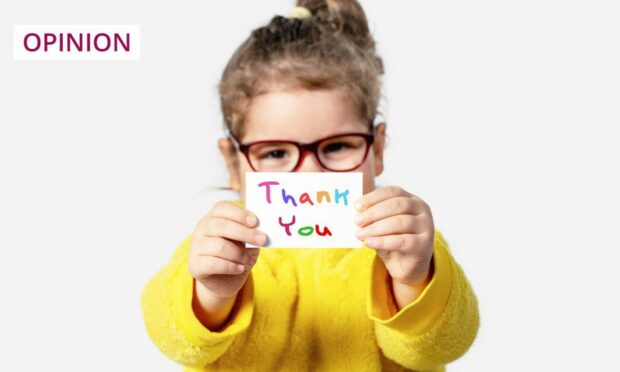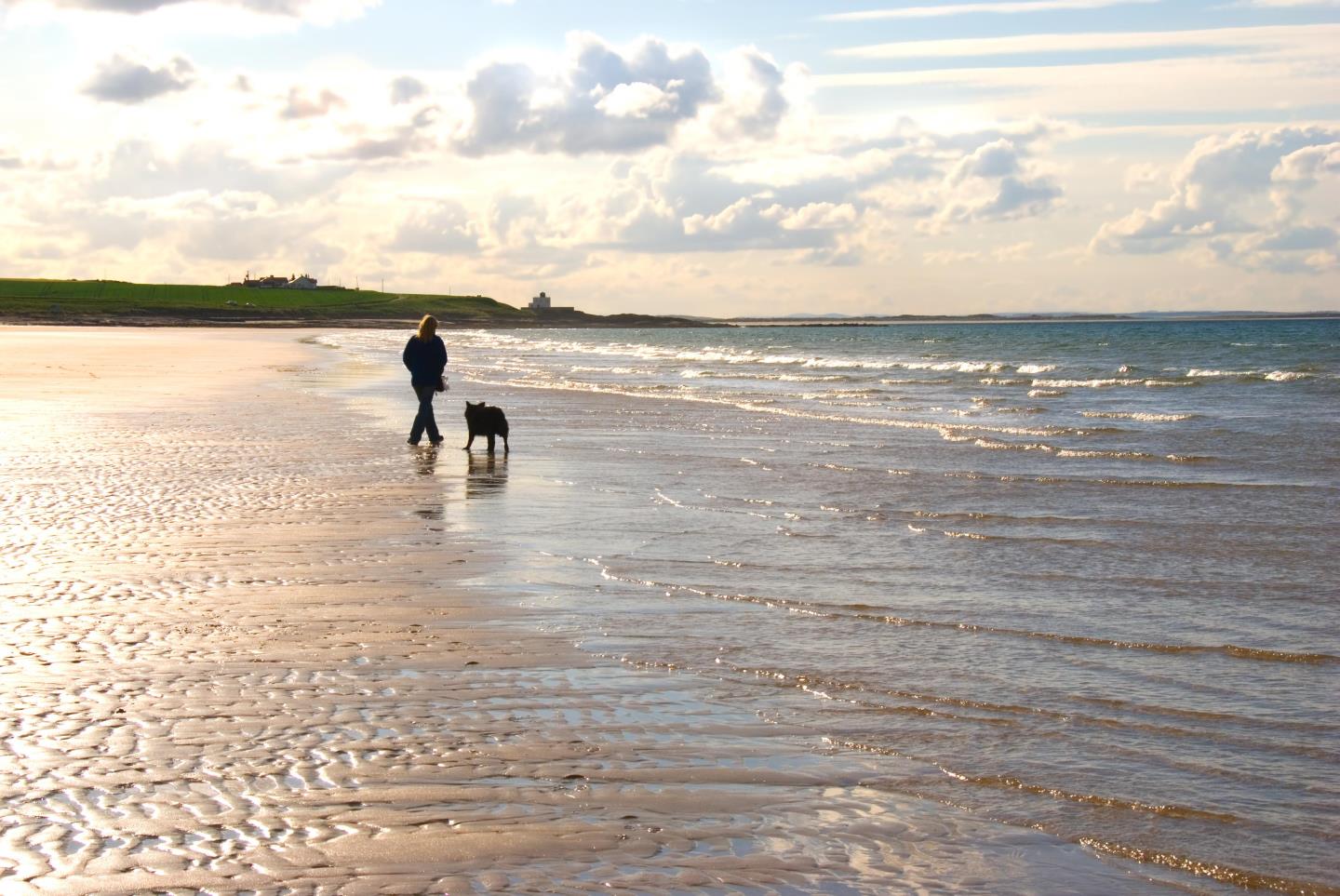Apparently, there’s no specific word for “please” in Finland. In the Philippines, instead of saying “thank you”, it’s customary simply to assume that the favour will be returned some day.
In the same vein, I’ve learned that there’s a First Nation language in Canada with no word for “sorry”, the word being deemed pointless without actual redress.
The UK, of course, is historically congested with manners and etiquette. Many of the class-based rules have, thankfully, faded away, such as cap-doffing and general obsequiousness towards the “gentry”. Although, given that I’m currently devouring the Outlander series of historical novels, I feel rather melancholy that gentlemen, upon making my acquaintance, no longer make a showy leg, sink into a low bow and murmur: “Your servant, madam.”
Like most parents, I did my best to teach my three children good manners. At home, we still refer to the sitting room as the “being good room”, because that’s where no nonsense was allowed. Mummy and daddy needed peace to watch TV, basically.
Good table manners were important to me because that’s the way I was brought up. Everyone learned the “correct” way to hold their knife and fork, and nobody started to eat until everyone was served and seated. Napkins were used. Nowadays, we all shovel our food in however we choose – pasta night being particularly uninhibited – but at least the basics are in place for when required.

I was lucky to have children who weren’t particularly picky eaters, so rules about clearing plates weren’t an issue, not that I would have enforced that one anyway. It horrifies me a little, to think of threats hanging over food – no pudding for you if you don’t finish your mince and tatties? Er, no, that’s a surefire recipe for a lifetime of food issues, right there.
However, one rule I was forced to deploy during those challenging toddler years, that of “no bare bottoms at the table”, stood all of us in good stead and continues to do so.
From small things to actions that take more thought
It feels tricky to write about how much I cherish good manners without sounding uptight and stuffy. Ooh, get her, clutching her pearls, sour-mouthed, tutting away. But, for me, good manners are what make modern life bearable, and they should be cherished at all costs.
Let’s start with the small things, beyond simply a please or a thank you. A wave from the driver let into the traffic queue. A hand to the mouth for a cough or a yawn. A passing of scissors, handle first.
A help with a bag on a train. A door, held open. A dog on a lead. A grateful smile at the person putting the divider on the supermarket conveyor belt.
A bit of space in a queue. Gratitude towards waiting staff. Those wee things that you don’t often register, but which you definitely would register, on a cellular level, if they weren’t there.
Then, the broader things that are more than split-second instincts. Remembering to ask after someone who’s not been well. Offering to pick something up from the shops.
Leaving only footprints, after a walk or a picnic. Careful driving and thoughtful parking.
Including people who enter a gathering on their own. Realising when you’re banging on a bit and, consequentially, shutting up and letting someone else speak. Accepting the “different” with neither fuss nor comment. Sharing snacks.
Having the wisdom and self-awareness to steal yourself away when you know you’re cranky, and no good is emanating from your presence… Maybe that one’s a bit niche, but I do feel that if you can’t be nice or even civil, then it’s only good manners to disport yourself somewhere else.
Manners evolve with the times
As I’ve already expressed, manners evolve with the times. I taught my children to write thank you letters as soon as they could form words with a pencil, because I knew how much their relatives appreciated receiving them. But, recently, I’ve turned a corner on that one.
One of my darling nephews sent me a card, in an envelope, in the post, with a stamp, thanking me for his birthday present. To my surprise, I rather wished he hadn’t.
Good manners cost nothing, you say? Well, when it comes to buying stationery and stamps, they cost a fair bit, these days. I’d rather he’d kept his hard-earned money to himself for his bills. Besides, he’d thanked me already.
Your idea of what constitutes good manners may differ wildly from mine
When I found myself with an unexpected day to kill in London – where he lives and works – last month, I messaged my nephew on the off chance that he might be free, in two hours’ time, for lunch and to receive his pressie.
His response? “Oh, wow! What a fun surprise!”
The sheer love and delight in that message, plus the wonderful hour we shared, was worth so much more than the receipt of the card which his good manners had compelled him to write. These days, I’m fine with a WhatsApp message or a text.
Your idea of what constitutes good manners may differ wildly from mine. Maybe it’s not the words for you, maybe it’s the body language, the almost imperceptible acknowledgement or dismissal of one person by another. Whatever it is, it’s about looking out for one another and simply being kind.
Erica Munro is a novelist, playwright, screenwriter and freelance editor

